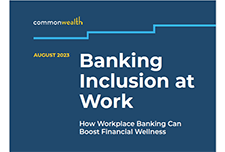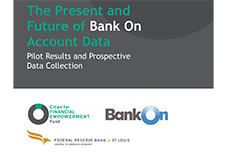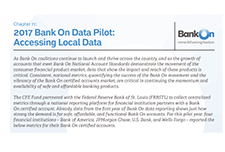At first glance, the latest FDIC National Survey of Unbanked and Underbanked Households findings are encouraging: rates of un- and underbanked households reached historic lows after trending downward for the last decade. Yet, a lack of access to quality banking remains a problem for nearly 25 million households—6 million of which don’t have any bank account, while an additional 19 million still rely on alternative financial services. This is especially true for Black, Hispanic, and American Indian or Alaska Native households, and those living on low incomes. For many of these households without full access to banking, barriers related to accessibility, trust, and providing value are most important to solve.
As banks explore new and existing strategies to meaningfully advance banking access for all income groups and close the racial wealth gap, Commonwealth conducted a landscape analysis and original research including interviews with 13 subject matter experts from banks, fintechs, credit unions, and employer benefits, on the opportunity in the workplace to advance banking access. We also brought our key learnings from our work with employers, retirement recordkeepers, and other workplace benefits providers.




